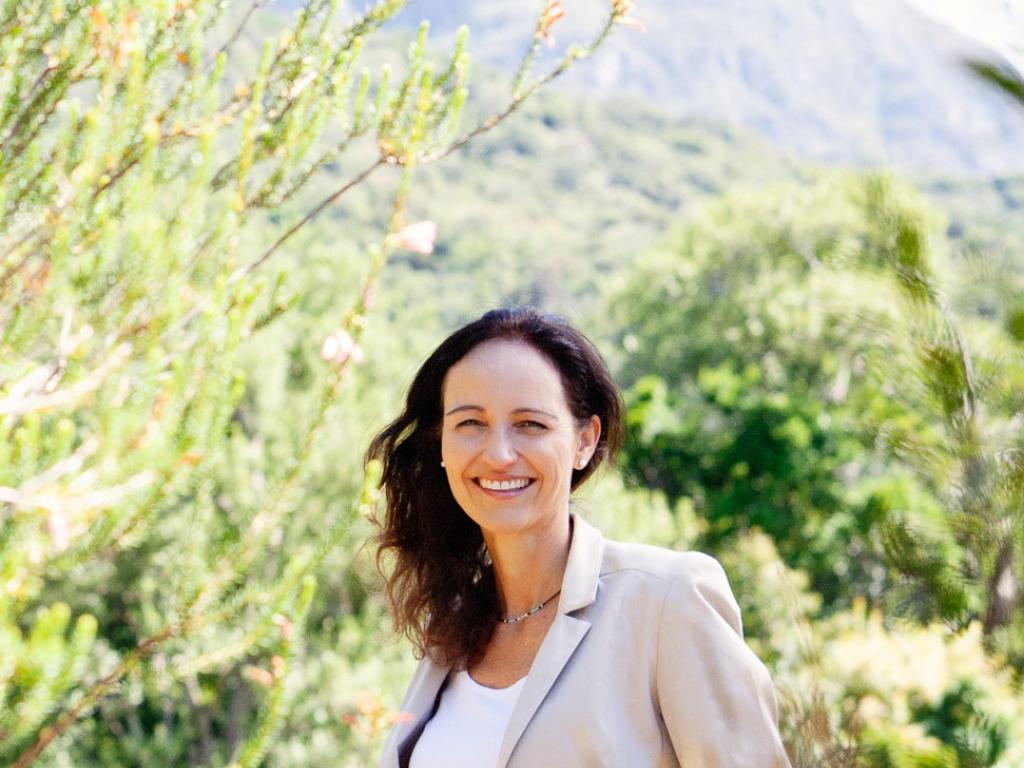Award for Fitz Honorary Research Associate, Prof. Wendy Foden

The British Ecological Society’s (BES) Marsh Award for Climate Change Research has been awarded to the University of Cape Town’s (UCT) Professor Wendy Foden, a world-leading researcher in climate change vulnerability assessments of threatened species.
Professor Foden, an honorary research associate at UCT’s FitzPatrick Institute of African Ornithology, has been recognised for the global reach of her work with the International Union for Conservation of Nature (IUCN) Red List of Threatened Species, as well as for her interest in translating science for practical conservation use, and in fostering conservation leadership. The award, provided by the Marsh Christian Trust and administered by the BES, will be handed over in 2021.
Foden is currently based at the South African National Parks’ Cape Research Centre where she leads a team carrying out applied research in and around the region’s national parks. She is also an associate professor at Stellenbosch University and has chaired the Climate Change Specialist Group of the IUCN Species Survival Commission since 2014.
Foden said that a non-linear career path, which has left her with one foot in research and the other in applied conservation, has enabled her to spot gaps and opportunities for transdisciplinary collaboration: “Most of my research has been highly collaborative, so the award recognises the work of a community of very dedicated researchers. I’m simply fortunate to be in a position to gather key people together to create really useful products while we have a good laugh. I’m glad that such ‘soft skills’ are increasingly recognised in science.”
Collaborative research
From 2007 to 2013 she led the IUCN’s development of a method for assessing species’ vulnerability to climate change, drawing on a wide range of experts’ field knowledge and research findings to produce an assessment that could be used alongside the IUCN Red List of Threatened Species.
“We applied the method to the world’s birds, amphibians, corals – and the study became the first to tackle entire species groups across the world. The approach has been widely adopted and is now used by researchers and conservationists around the world,” she explained.
Best-practice guidelines
From 2014 to 2016 she continued this work to establish global best-practice guidelines for assessing species’ vulnerability to climate change – again bringing together a diverse group of researchers and practitioners from around the globe.
“Since our field is new, it meant arduously wading through a great many dark and tangled uncertainties. Ultimately we managed to draw together practical guidance for conservation practitioners, and we’re currently working with [the] IUCN to include these as part of [the] IUCN Red List [of Threatened Species] training.”
“I think that the messiest and most uncertain areas of science are the most exciting and provide the greatest opportunity to do meaningful and innovative work.”
“The guidelines also highlight a number of important research needs and gaps. I think that the messiest and most uncertain areas of science are the most exciting and provide the greatest opportunity to do meaningful and innovative work. I may have a lot more grey hair and stronger reading glasses than when I began this work, but I’ve never been bored and it’s very satisfying to see it being used.”
For this work, she recently received the IUCN’s George Rabb Award for Conservation Innovation for her “innovative, dynamic and thoughtful leadership of the Species Survival Commission’s work on climate change”.
Professor Jane Memmott, the president of the BES, said every year the prizes recognise and celebrate the exceptional contributions of individuals to advancing ecology and communicating its importance for society: “I am delighted to offer my congratulations to the winners of this year’s BES awards for their exceptional contributions to ecology.”
Foden said that she was surprised by the award, but extremely proud to represent Africa’s woman scientists.
“I hope that the award inspires other women scientists, particularly from developing countries, to step up to conservation and climate change challenges.”
